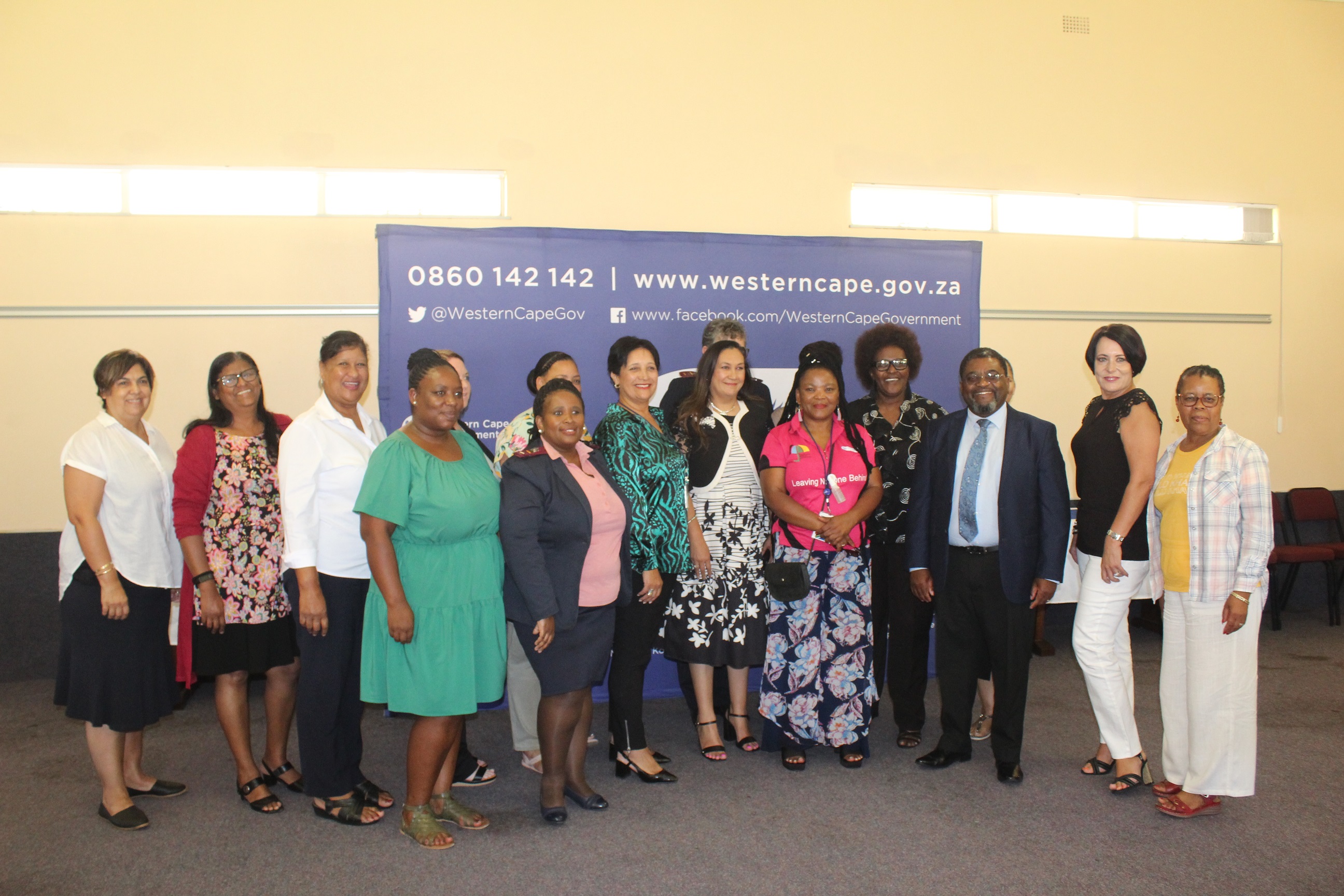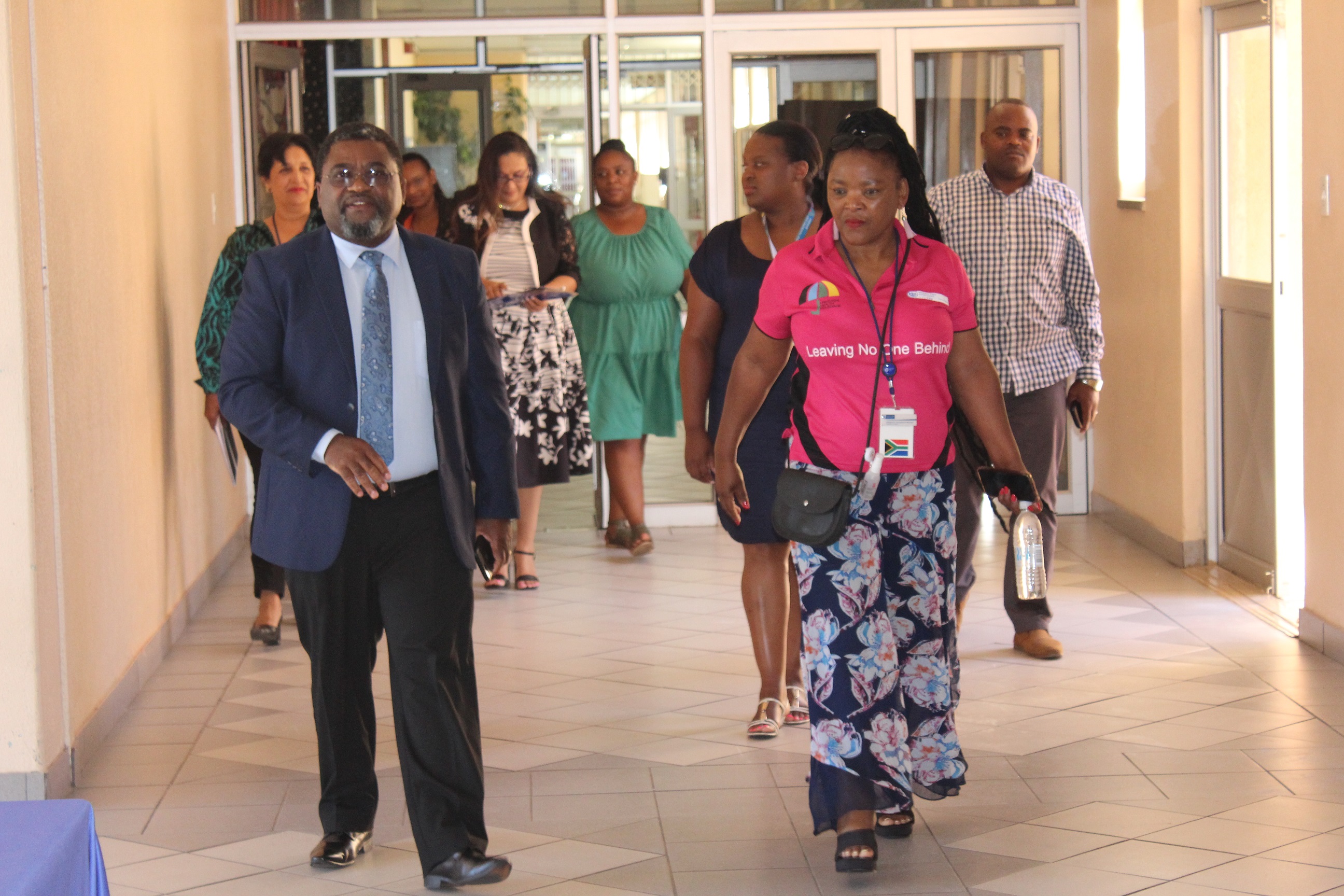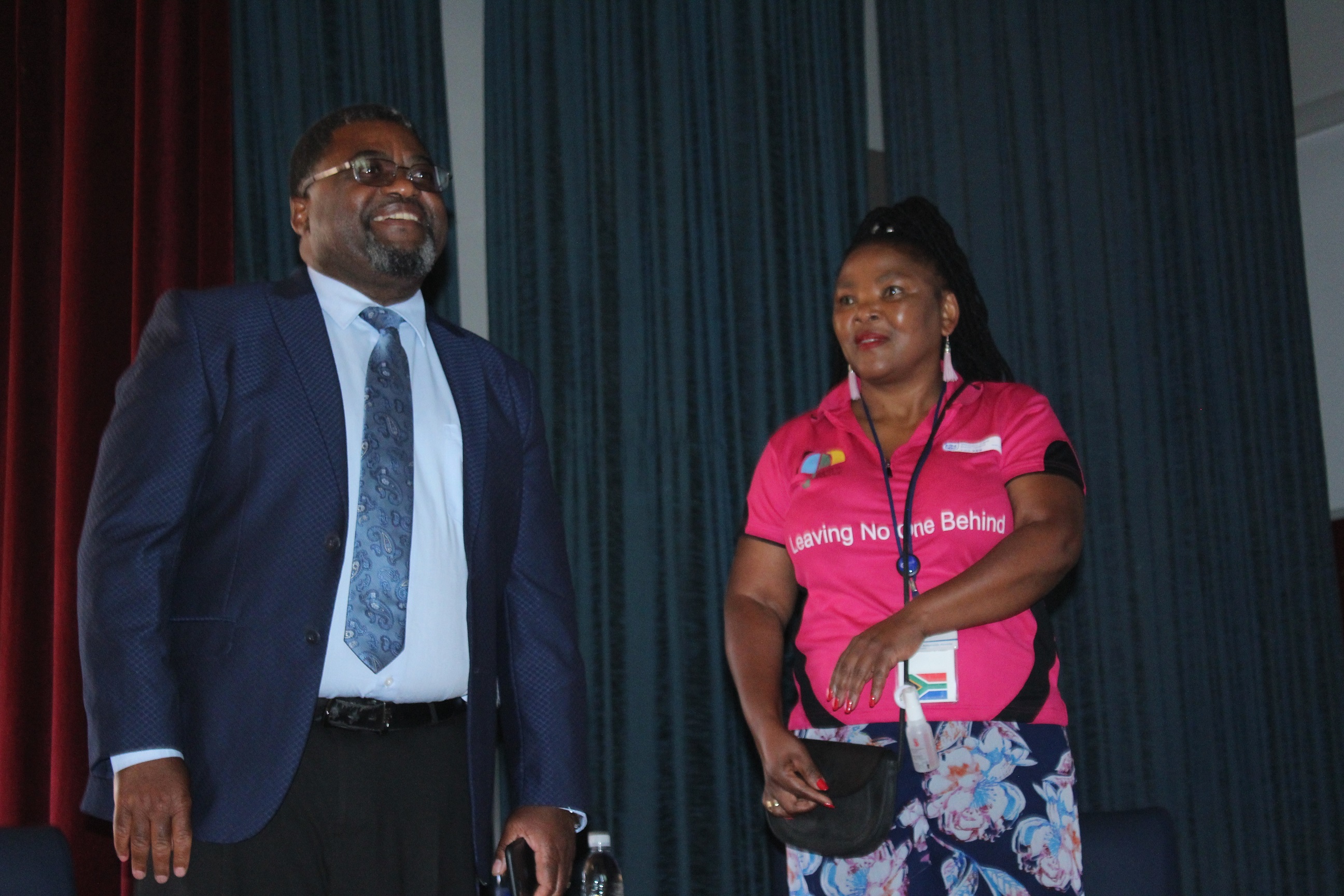
News
Minister Mbombo welcomes 300 new nursing students at WC College of Nursing
The Western Cape College of Nursing (WCCN) is kicking 2023 off on a high note by expanding their course offering and annual intake of students. On Thursday, 26 January 2023, Dr Nomafrench Mbombo, Minister of Health and Wellness in the Western Cape, welcomed 300 new first year nursing students across three campuses.
The WCCN was established in 1999 and partnered with four universities to offer a four-year diploma programme (GN R425) and a range of post basic nursing speciality programmes (GN R212). In 2005, the WCCN entered into an agreement with CPUT and continued to offer the four-year diploma nursing programme and later B. Tech programme . After delinking with CPUT in 2018 , the WCCN offered the four-year diploma programme in its own right, with the last students completing this legacy programme graduating in 2024.
The WCCN commenced with a new nursing programme, a Diploma in Nursing (GN R171) during 2021and will see the first student intake graduate in 2024. This year a brand-new certificate course, a Higher Certificate in Nursing (GN R169) was added to the curriculum. The WCCN is also the only public nursing college currently accredited by CHE and SANC to teach a four-year Bachelor’s degree in Nursing (GNR174), which leads to registration as a professional nurse and midwife. The first intake of students for this programmes is scheduled for 1 March 2023.
The Higher Certificate in Nursing (GN R169) is a one-year course, leading to registration as an auxiliary nurse. This nurse will have basic nursing skills enabling them to work in hospitals and clinics under the supervision of a general nurse, professional nurse and midwife. The three-year Diploma in Nursing (GN R171) leads to registration as a general nurse. This programme prepares a nurse to be able to work in both hospitals and community settings as a general nurse and equip them to meet the increasing health needs, as well as health related problems, of multicultural populations in a wide variety of settings while considering the current and future social, cultural, and economic context of the country.
The regulations for accreditation of nursing qualifications have changed and requires both CHE and SANC accreditation. The courses offered by WCCN are fully accredited by SANC, CHE and all qualifications are registered with SAQA in accordance with NQF Act, 2008.
“I am pleased that WCCN is one of the public nursing colleges which is the first to receive accreditation by both CHE and SANC for all undergraduate nursing programmes, whilst awaiting the final accreditation of the Post Graduate Diploma programmes by CHE. Offering these programmes will go a long way in resolving the current shortages of specialist nurses in the province and nationally. I want to commend the WCCN staff, both academic and support staff, for working very hard to ensure that we have obtained this accreditation and we can proudly say we are a higher education institution,” says Dr Tendani Mabuda, Director of the Western Cape Nursing College.
“One of my priorities is to strengthen the healthcare system so that we can provide the best healthcare to our communities. Through our Provincial Nursing Strategy, we have identified advanced measures to overcome any possible shortage of staff and to actively fill gaps in the system. The WCCN plays a key role in strengthening our compliment of specialist trained nurses,” says Dr Nomafrench Mbombo, Minister of Western Cape Department of Health and Wellness.
The Department has made a huge investment towards training of nurses in the province. Several interventions to increase the supply of nurses were implemented such as establishing an integrated nurse-training framework, a coordinated clinical nurse-training platform and obtaining SANC accreditation of additional nursing programmes and clinical placement sites.
The WCCN is focusing on expanding its programme offering in order to align with the Departmental Nursing Strategy to fill gaps in the system. “We are awaiting the SAQA ID for the Advanced Diploma in Midwifery (GN 1497), as well as CHE accreditation for the postgraduate programmes in Peri-operative Nursing, Mental Health Nursing, Critical Care Adult, Trauma and Emergency, Orthopaedics, Primary Care Nursing, and Midwifery. We are also in process of submitting the curriculum for Forensic Nursing to SANC,” says Dr Mabuda.









